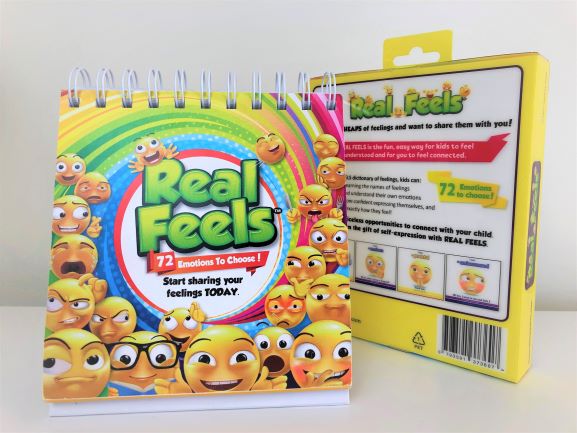
Practical strategies to strengthen the bond between you
and those you love.
Emotion Coaching
Emotion coaching is a highly effective, evidence based way of strengthening relationships and raising emotionally intelligent children.
Emotion coaching can help you support your child through their difficult feelings using empathy, active listening and gently guiding them to solutions. With emotion coaching, you will discover the challenges your child experiences in life and have a greater understanding of how they feel. As a result they will feel validated and supported, and you will feel closer to your child; all of which strengthens the bond between you.
Why Emotion Coaching
Dr Gottman, relationship psychologist and researcher, identified four main ways in which parents react to their children’s emotions: dismissive, disapproving, laissez-faire and emotion coaching.
Each of the four parenting styles has a lasting impact on a child’s sense of wellbeing and plays a significant role in their life satisfaction and success in adulthood. While dismissive, disapproving and laissez-faire styles can negatively impact a child’s self-esteem and sense of self-worth, emotion coaching serves to enhance a child’s self confidence and teaches them to trust themselves.
The four parenting styles.
Dismissive
When parents dismiss their child’s emotions, they seek to brush their child’s feelings aside either by distracting the child (“here, why don’t you watch some tv”) or by minimising the importance of their feelings (“stop stressing, you have nothing to worry about”).
Impact on child: the child feels as though their feelings are not valid and should not be trusted. Children who are raised this way grow up to be insecure, self-doubting and uncomfortable in expressing their feelings.
Disapproving
When parents disapprove of their child’s emotions, they judge and criticise their child for expressing emotions. Emotions are seen as weak and “in the way”. Parents with a disapproving style of parenting feel discomfort and annoyance at their child’s emotions and seek to suppress their child’s emotions as a result.
Impact on child: similar to the dismissing parent, children of disapproving parents also learn to distrust and suppress their feelings. They grow up feeling unvalidated and insecure.
Laissez-faire
When parents have a laissez-faire approach to their child’s feelings they tend to be permissive or unresponsive to their child’s emotions. The child is free to express themselves without restriction or guidance on how to express themselves in a pro-social manner.
Impact on child: children grow up lacking the ability to self-regulate as they have not been set limits. As a result they are often demanding, self-involved and inattentive to others’ emotions. This affects their ability to form and maintain friendships.
Emotion Coaching
When parents emotion coach, they are receptive and empathetic to their child’s emotions. They comfort and support their child, provide guidance on healthy self expression and help problem solve.
Impact on child: emotion coaching gives children an EQ Advantange. Children become comfortable experiencing their feelings, learn healthy forms of self expression and can problem solve. This makes them better at reading other people’s emotions which in turn has a positive effect on relationships with their peers, family and teachers. They grow up to be confident, are better able to tackle life’s challenges and have a greater sense of wellbeing.
Emotion coaching benefits
Emotion coaching has life-long health benefits, and emotional health been shown to the be the number one predictor of life satisfaction in adulthood. In fact, research behind the emotion coaching technique has found children who are emotion coached experience specific mental, social and physical health advantages.
- Kids had higher reading and math scores at age 8 than all the other kids, even when IQ was controlled for;
- They demonstrated self-regulation. They soothed and calmed themselves more quickly when they were upset and had better impulse control;
- They had fewer infectious illnesses (this is speculated because they could calm their heart rates more quickly. When heart rates remain high during stress the immune system is weakened);
- They could better focus their attention;
- They were better at delaying gratification. This ability, in other research, is related to higher college admission test scores, better college performance, and better adult relationships.
- They were better at motivating themselves.
- They could cope better with life’s ups and downs.
- They required less discipline.
- They had healthier peer relationships.
(source: Emotion Coaching Parent Handbook, The Gottman Institute)
How to Emotion Coach
Emotion coaching is all about connecting with your child on an emotional level first, before guiding them to problem solving. The infographic below gives you step by step instructions on what to do for your child AND what to do for yourself. Your emotional wellbeing is essential for successful emotion coaching.
The challenges of emotion coaching
Emotion coaching is all about following a series of simple steps so it should be easy, right?
As straightforward as it may sound, emotion coaching can present some challenges for parents and care givers. If you have been parenting using more of a dismissive, disapproving or laissez-faire approach, it may take a little while before your child becomes trusting of the new emotion coaching technique you employ.
In addition, you may find yourself struggling to maintain a calm presence when your child is in an emotional state. Feeling discomfort and becoming reactive to your child’s emotions is a very common challenge for most parents.
The paragraphs below address common hurdles parents face, and strategies on how to overcome them. This will help you become the effective emotion coach your child needs you to be.
My child refuses to talk to me
If you have previously reacted to your child’s emotions with anger, frustration or avoidance, your child may initially be suspicious when you change your approach to the emotion coaching technique, and might be reluctant to speak about their feelings with you.
If this occurs try simply being present, calm and empathetic. Show affection and understanding through eye contact and affection (if possible). Over time your child will learn to trust your peaceful presence. When you acknowledge their feelings without judging them, it will help make your child feel validated.
Your first few attempts may only get you part way through the emotion coaching steps. Don’t give up. Stick with it. Be empathetic. Over time your child will begin to open up and learn to trust you with their feelings. This is when you will be able to guide your child to the problem solving step.
My child gets angry/upset when we try to problem solve
Every child is unique and will calm down when they are ready to calm down, not when you believe it is time. If your child is angry or upset it means they are not yet ready to problem solve. Continue to express empathy and understanding until they feel better. Then try problem solving.
If your child starts becoming emotional again once you have commenced problem solving, return to showing empathy. Emotion coaching is often not a linear process and your child may have a build up of feelings they have been holding on to for a while.
Again, stick with it and move back a step whenever you see your child is becoming emotionally distraught.
I become angry/uncomfortable when trying to emotion coach my child
Emotion coaching your child while they are expressing themselves is not always easy! Anyone who has ever tried remaining calm and empathetic while their child is acting out or defiantly rolling their eyes at you will attest to this.
Even though emotion coaching is challenging, it can be an amazing opportunity to gain self-awareness because it is during these times you learn about your trigger points. The discomfort you feel while your child is in a state of emotional distress is a sign you have your own emotional work to do. Being willing to explore your discomfort can grow your own emotional intelligence and will give you a greater sense of empowerment and wellbeing.
If you are repeatedly triggered by your child’s expression of emotion and you find your feelings interfering with your ability to be an effective emotion coach, there are some strategies you can implement to bring yourself greater calm.
- Meditation: meditation has been practiced for centuries and there is good reason for this. Meditation serves to centre you and keep you present in the here and now. A daily practice of meditation will have a positive impact on helping you maintain calm and focused in the midst of chaos. This is incredibly helpful when emotion coaching your child and has a myriad of other health benefits.
- Therapy: exploring your emotions with a great therapist can help you change your thoughts and behaviours to set you free from your past. This will make you a much more effective emotion coach.
- The EQ Advantage Masterclass: I created this enlightening 8 week program to show you how to peacefully emotion coach your kids and masterfully manage all your relationships so you get the most out of every relationship you have. Each one-on-one coaching session is designed to help you become the best parent, partner and friend you can be and create the fulfilling relationships you deserve.
I feel awkward when I emotion coach
Emotion coaching is not an innate talent, it’s a learned skill. If your parents didn’t emotion coach you, then it’s no surprise it may seem a little uncomfortable at first: you are now learning on the run. However just like most things in life, the more you do it, the easier it gets.
Cut yourself some slack and appreciate the learning you gain from the emotion coaching journey. It’s a marvellous way to discover who your child really is and be their biggest supporter throughout their childhood challenges. They will thank you for it one day!
Emotion Coaching: it’s worth it.
Emotion coaching truly is a powerhouse in building relationships and raising emotionally intelligent children. The challenges you may experience as you practice emotion coaching are worth the rewards. Emotion coaching is the new way forward in growing a healthier, happier life for you, for your child and for generations to come.


